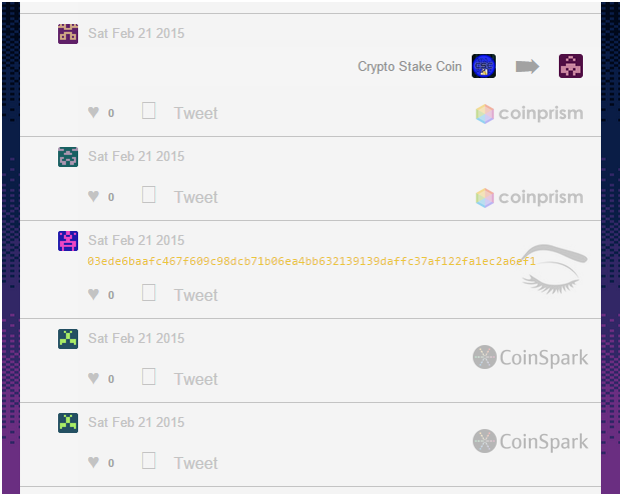The comparisons between the early days of the internet and those of Bitcoin have a whole new meaning after Blockai launched its Blockchain -powered web browser.
The project emerged from the ashes of a previous bitcoin-related project QuickCoin. It initially went viral, reportedly getting showered with $150,000 in tips over 10 days, but ultimately never gained traction. QuickCoin was a Facebook-integrated wallet, themed after making sending bitcoin as easy as social messaging.
The Blockai project continues the social theme, allowing for social sharing and the tipping of favored content with a "love button." Documents can also be signed and timestamped, features that are commonly envisioned in future Bitcoin 2.0 applications.
CEO Nathan Lands calls it the "frontpage for the blockchain" in that it combines a traditional internet browser with an integrated publishing tool. Messages are etched into blockchain metadata which can be reviewed and commented upon by the network's users.
Also included is a bitcoin wallet, which runs in the browser (similar idea to a Chrome wallet) and posts via a third-party blockchain API. Transactions are confirmed by the servers behind Blockai.

Time stamping of documents and bitcoin transactions are charged 10 bits (10 millionths of a bitcoin) each.
Lands explained that the tool helps bring together multiple technologies including those of the blockchain, helping users naturally make use of the blockchain without having to run around the web and learn about it.
The tool also aims to bring bitcoin's appeal to the masses through an emphasis on visualization and color coding. Users should be able to use the blockchain for applications that matter to them. Lands explained:
"If your idea is you want to submit a document, maybe that’s how you’re going to use it. But different people are going to use it in different ways, the same way people are going to use the iPhone in different ways for different applications that are relevant to them."
The tool, currently in beta, is envisioned to one day evolve into more of an app store, helping users find relevant applications.

















